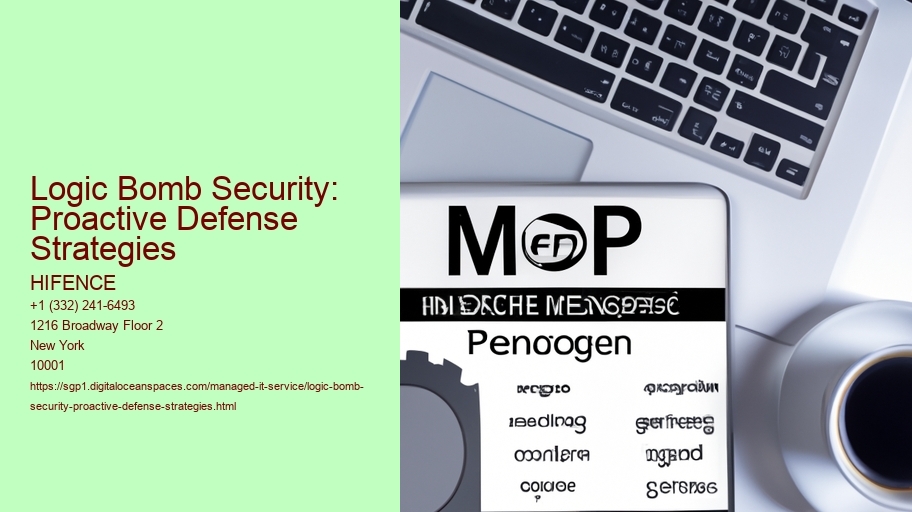Okay, lets talk about logic bombs and, more importantly, how to defend against them. Think of it like this: a logic bomb isnt some explosive hidden in your computer (although the damage it can cause can certainly feel explosive). Instead, its a sneaky piece of code, intentionally planted, that lies dormant until a specific condition is met. When that trigger event happens, boom – the bomb detonates, unleashing its malicious payload.
So, what kind of conditions are we talking about? Well, it could be anything. Maybe a specific date (like an employees last day), a particular user logging in, a certain number of transactions occurring, or even just the absence of a regular system update. The creativity of the bomber is the only limit.

Now, the real question is: how do we protect ourselves from these insidious digital time bombs? The answer lies in a proactive defense strategy, meaning we need to be vigilant before the bomb goes off, not just try to clean up the mess afterward. Its like preventative medicine versus emergency surgery. Preventative is always better.
Here are some key elements of a solid, proactive defense against logic bombs:

Robust Code Reviews: This is arguably the most crucial step. Before any new code (or even updates to existing code) are deployed, it needs to undergo rigorous scrutiny. Code reviews should be performed by multiple experienced developers who understand security best practices. They should be looking for anything suspicious, unusual control flow, or code segments that seem to be waiting for a specific condition before executing. Think of it as a detective searching for clues.

Strict Access Control and Least Privilege: Limit who has access to critical systems and code repositories. Only grant users the absolute minimum level of access they need to perform their job duties. (This is the principle of least privilege). This reduces the risk of a rogue employee or compromised account from planting a logic bomb in the first place. Its like locking the door to a valuable asset only giving the key to those who need it.
Change Management Procedures: Implement a well-defined change management process for all code changes.
Logic Bomb Security: Proactive Defense Strategies - managed services new york city
- managed services new york city
- managed it security services provider
- managed services new york city
- managed it security services provider
- managed services new york city
- managed it security services provider
- managed services new york city
- managed it security services provider
- managed services new york city
- managed it security services provider

Logic Bomb Security: Proactive Defense Strategies - check
- managed service new york
- managed it security services provider
- managed services new york city
- managed service new york
- managed it security services provider
- managed services new york city
- managed service new york
- managed it security services provider
Regular Security Audits and Vulnerability Scanning: Regularly scan your systems for vulnerabilities and conduct security audits to identify potential weaknesses in your defenses.
Logic Bomb Security: Proactive Defense Strategies - managed it security services provider
Intrusion Detection and Prevention Systems (IDS/IPS): These systems can help detect and block suspicious activity in real-time. They can be configured to monitor for unusual code execution patterns or attempts to modify critical system files. While not a foolproof defense against logic bombs, they can provide an extra layer of protection.
Employee Background Checks and Monitoring: While it might sound a bit intrusive, performing thorough background checks on employees who will have access to sensitive systems is a good idea. Furthermore, monitoring employee activity (within legal and ethical boundaries, of course) can help detect unusual behavior that might indicate malicious intent. Its about creating a culture of security awareness and accountability.
Code Signing: Use code signing certificates to verify the authenticity and integrity of your software. This helps ensure that the code hasnt been tampered with after it was signed.
Behavioral Analysis: Implement systems that analyze user and application behavior to detect anomalies that might indicate a logic bomb is about to be triggered.
Logic Bomb Security: Proactive Defense Strategies - managed services new york city
- managed services new york city
- managed services new york city
- managed services new york city
- managed services new york city
- managed services new york city
In conclusion, defending against logic bombs requires a layered approach. No single solution is perfect, but by implementing a combination of these proactive defense strategies, you can significantly reduce your risk. Its all about being vigilant, staying informed, and taking a proactive approach to security. Dont wait for the bomb to explode – defuse it before it even has a chance! And remember, security is a continuous process, not a one-time fix.
